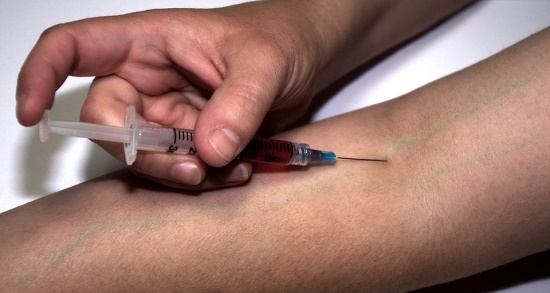Are you experiencing severe mood swings? Worried about the sudden burst of acne? Your hormones are to be blamed. Our body produces several hormones that must exist in harmony to ensure proper functioning of the body. Hormonal imbalance can have dramatic effects on one’s physical and emotional health.
If you are experiencing chronic symptoms and disorders, the first thing that you need to do is to get your hormone level tested. With the advancements in the medical field, people can now check their hormone levels without having to visit a clinic. Several types of hormone testing option exist among which serum, saliva, and urine testing are the most common. In this article, we will try to find an answer as to which method of hormone testing is the most effective.
The Best Way to Test the Hormones
When it comes to hormone imbalance test, people often ask what the best way to test the hormones is. Unfortunately, there is no direct answer to this question. This is because each of the hormone testing methods has their own pros and cons. Besides, there are different tests to monitor different levels of hormones. For instance, a blood test is the most effective way to test the hormone levels during menopause.
Now let us take a look at each of the three types of hormone imbalance testing methods:
Serum Testing
Blood or serum testing is considered as an effective testing method since it can test both free (active) and total levels of testosterone, something that saliva and urine tests are unable to do. Serum testing can also be used to check the sex hormone levels; however, some experts are of the opinion that blood tests do not provide a clear picture. This is because blood tests provide a single snapshot which does not provide all the information necessary to assess the actual hormone levels in a human body. Another limitation is that blood test cannot be performed at home. One needs to visit a lab where a health care provider can draw blood required for testing.
However, serum testing provides accurate results for FSH, Insulin, Prolactin TSH, RT3, LH and other hormones.
Saliva Testing
Saliva tests are effective to measure the hormone levels at the cellular level. Being non-invasive in nature, it is often preferred by people. Moreover, the patients can order it by themselves and/or by medically non-licensed professionals such as chiropractors, acupuncturists, and naturopathic physicians too. Multiple collections of sample throughout the day, in case of saliva testing, allows people to track abnormal hormone patterns, which is not possible (practically) in case of serum testing.
However, there are some limitations of saliva testing as well. People, especially elders often have low saliva production and it can hamper the test results. Moreover, a number of restrictions need to be followed to ensure optimal results with saliva testing. Again, hormones are present in much lower levels in saliva as compared to serum or urine, so you might not be able to get the exact results. Contaminations such as gum bleeding, etc. can also affect the results.
Saliva testing offers the best results when measuring hormones such as Cortisol, DHEA, Oestrogen, Progesterone, and Testosterone.
Urine Testing
Urine testing is not very popular for hormone testing; however, it is extensively used in research. Two types of urine tests are used:
24-hour urine testing – It offers accurate results since it is not affected by the hour-to-hour fluctuations in the hormone levels, as seen in saliva and serum tests. It can effectively measure hormone metabolites. A 24-hour urine test works best for female hormone balance, risk of breast and prostate cancers, Oxytocin, etc.
Dried urine testing – Relatively a new method of testing hormones, it combines the advantages of saliva and 24-hour urine testing to provide information to assess the exact hormonal health of an individual. Dried urine testing is best used for Circadian Cortisol pattern, adrenal health, female hormone balance, etc.
Even though urine testing is capable of returning accurate results, it is not recommended for people with kidney diseases and elderly people who are unable to manage urine collection. Moreover, the results can be complex and difficult to interpret, so you need the assistance of a health care provider who can help you understand the results.
Conclusion
Testing the hormones from time to time is very important for every individual, especially as you age. Testing the hormones will allow you and your physician to interpret why certain health conditions prevail and how to get rid of them. Even though you can perform some hormone test by yourself, it is best advisable to consult your physician, as to which method would be the most effective, depending upon your condition.
Remember, serum, saliva and urine tests offer optimal results when used under specific conditions; so make sure you use the right methods to measure specific hormones.

